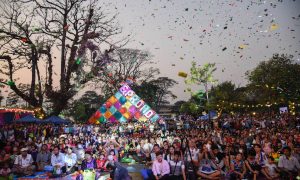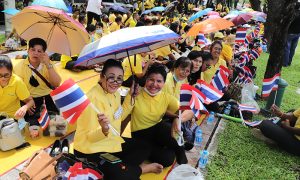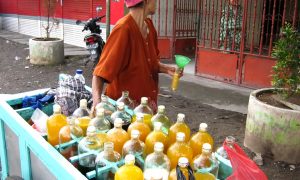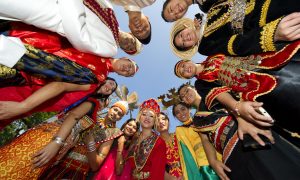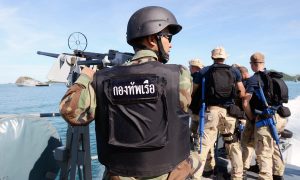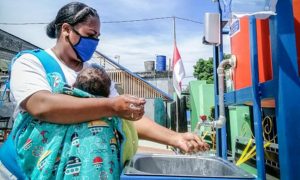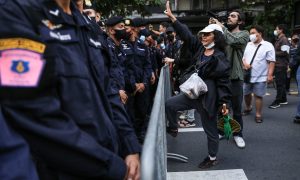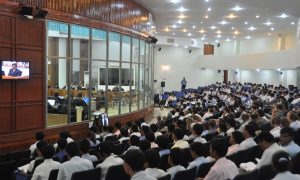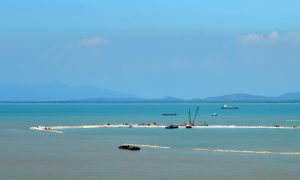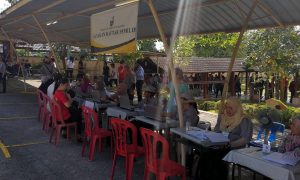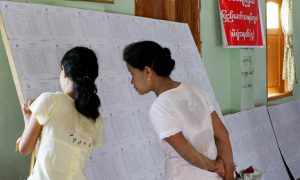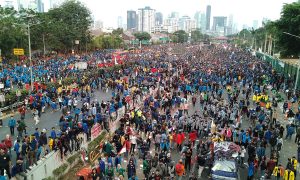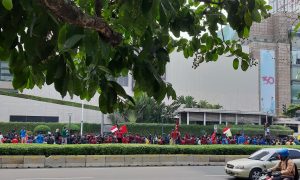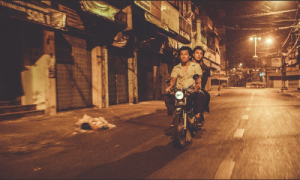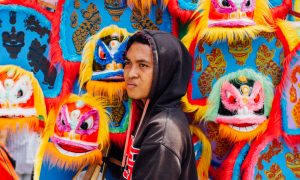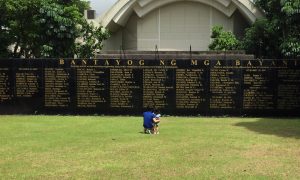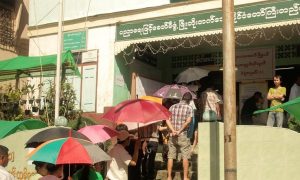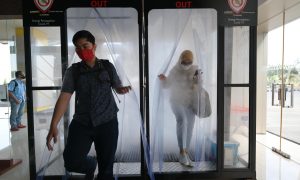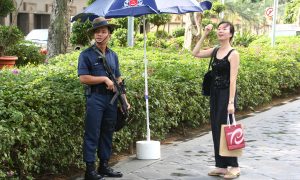Findings give direction for advocacy groups to strategise change-making programs.
The right to water: governing private and communal provision in rural Indonesia
Three cases illustrate that the role of private providers and communal works, or a combination of the two, are the norm among poor, rural communities
Division and unity: anticipating the regime’s response to Thailand’s protests
Pro-democracy groups have taken to the streets in the past, only to see agents provocateurs and royalist reactionaries mobilised to generate confrontation and violence.
Revolution from the kitchen: women and ecological responses to COVID-19
The kitchen has become a centre of social solidarity from which women are making invaluable contributions to the COVID-response.
Thailand’s network monarchy revisited
Monarchy network data revealed through Yoshinori Nishizaki’s research explains one of the pivotal moments in modern Thai history, writes Craig Reynolds.
National harmony: race, politics and campaigning in Malaysia
A new report analyses debates around social cohesion and a failed proposal for a National Harmony Commission in Malaysia in light of Pakatan Harapan's collapse
New Books on Southeast Asia: Melissa Crouch on the Myanmar Constitution
On the unusual context for the drafting of the Constitution of Myanmar, and its impact on present-day politics.
Corruption and power plays in the Royal Thai Navy’s new leadership
In the wake of the annual military reshuffle, the dominant faction in the Royal Thai Navy is facing a juncture due to two recent corruption scandals.
Gendering Indonesia’s responses to COVID-19: Preliminary thoughts
The approach used in the creation of these policies ignores that women may face more difficulty in accessing the promised benefits.
The constitutional rot behind Thailand’s emergency decree
Constitutional rot can eventually lead to a full-blown crisis where no one obeys the highest laws of the land, descending into a perfect chaos.
The ECCC: history education for Cambodia’s young generation?
While survivors often become emotional when speaking about the past, they feel younger generations must learn from the past to prevent genocide in future.
Creating land in the sea: the quest for greater state autonomy in Malaysia
Land reclamation initiatives seek to side-step national regimes which had previously constrained the autonomy of local governments.
Alternative Visions for Malaysia requires combating political clientelism
Ross Tapsell reviews a new book on Malaysian politics ahead of the ANU Malaysia Update 2020 “Alternative Visions for Malaysia”.
Securing a fair election in Rakhine’s conflict zones
As the Arakan Army’s armed struggle appears increasingly attractive to young voters, Myanmar’s democracy cannot afford the appearance of another false promise.
Indonesian protests point to old patterns
The return of student protests and the government’s response have are reminiscent of the era of authoritarian rule
Indonesia’s omnibus law is a bust for human rights
Trade unions and human rights groups believe the law is in fact no more than an attempt by the nation’s oligarchs to roll back political reform.
“Song Lang”: a story of art, love and life in post-war Saigon
Song Lang is a film neither about cải lương nor Saigon. It is a film about the city's people, their connections and how relationships shape their selves and life paths.
Contemporary art event: Indonesia calling 2020
An upcoming exhibition aims to raise awareness of the impact of COVID-19 in Indonesia and to encourage aid initiatives in any form
How China’s foreign policy shapes prejudice against Chinese Indonesians
China’s domestic and foreign policy actions indirectly affect prejudice against Chinese Indonesians
Remembering martial law in the Philippines: Education and media
Stay at home orders are opening up opportunities for critical thinking and teaching on history.
Myanmar’s electoral management institutions: the challenges of monitoring
In 2020 the role of the Union Election Commission and election monitoring seems increasingly politicised.
Is COVID-19 muting or fueling religious polarisation in Indonesia?
Islamists continue to mobilise based on political considerations rather than science and public health concerns.
Emerging dynamics among Southeast Asia’s Nepali diaspora
Associations and the polyvocality of social media can bring to fore diverse meanings of being in the diaspora
 Facebook
Facebook  Twitter
Twitter  Soundcloud
Soundcloud  Youtube
Youtube  Rss
Rss 